SDGs Strategy Development Project for Kokubu Group [Sep 2019-Mar 2020]
Founded in 1712 in Nihonbashi, Edo (old name of Tokyo), Kokubu Group is one of Japan’s leading food wholesalers. Kokubu Group plays a key role in Japan’s food distribution industry by providing its service to 35,000 customers including supermarkets, convenience stores, department stores, drugstores, liquor stores and the food service and restaurant industry, as well as by sourcing from 10,000 food manufacturers.
For more than 300 years since its establishment, Kokubu Group has continued and expanded its business to this day while constantly confronting society and making changes, overcoming crises such as the Great Kanto Earthquake in1923 and World War II. SHIP supported the company’s “SDGs Strategy Development Project” for 6 months from 2019 to 2020.
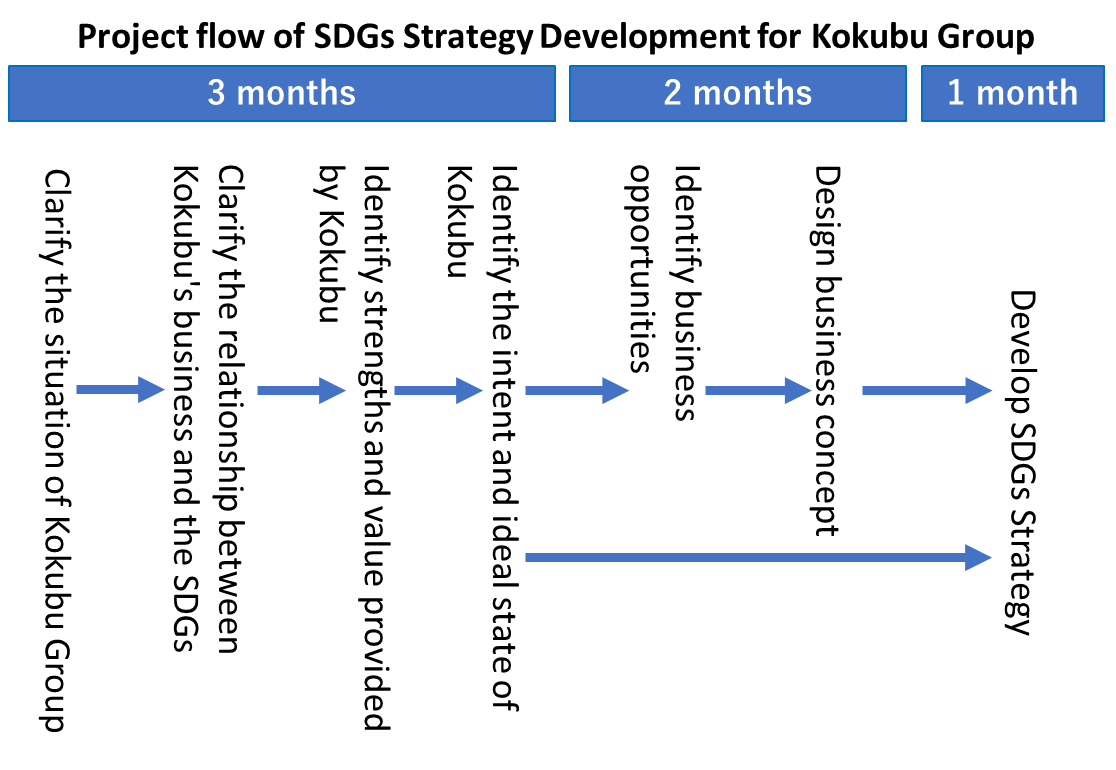
In this project, a core team of eight members was formed, including members from the corporate planning, sales and logistics divisions in addition to the Sustainability Promotion Section, to reflect the SDGs in the management plan and to directly incorporate the SDGs strategy to business in the field.
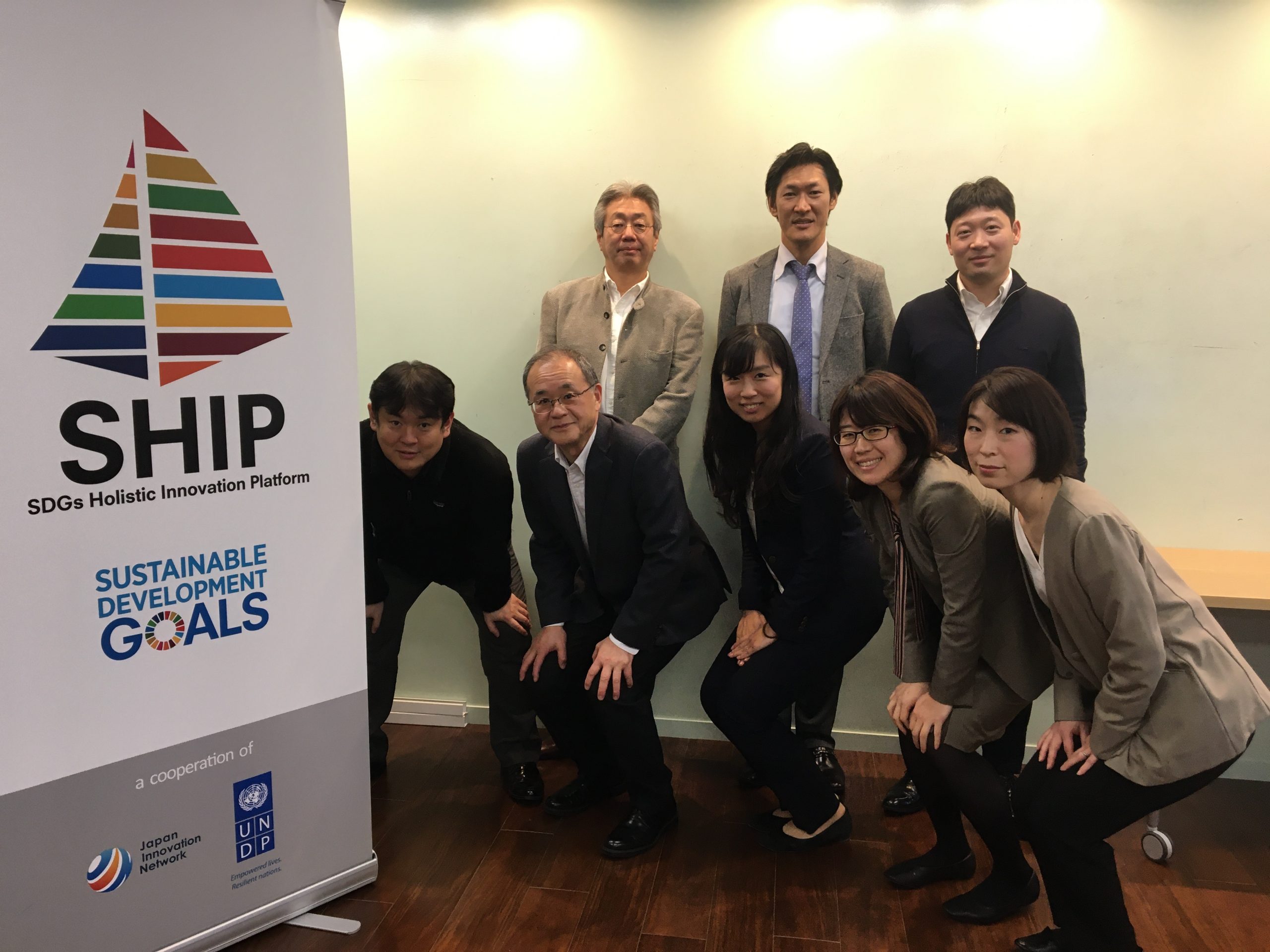
The project was also part of Kokubu’s innovation activities and used the framework of ISO 56002: Innovation Management System, which JIN was involved in developing.
Framework of ISO 56002
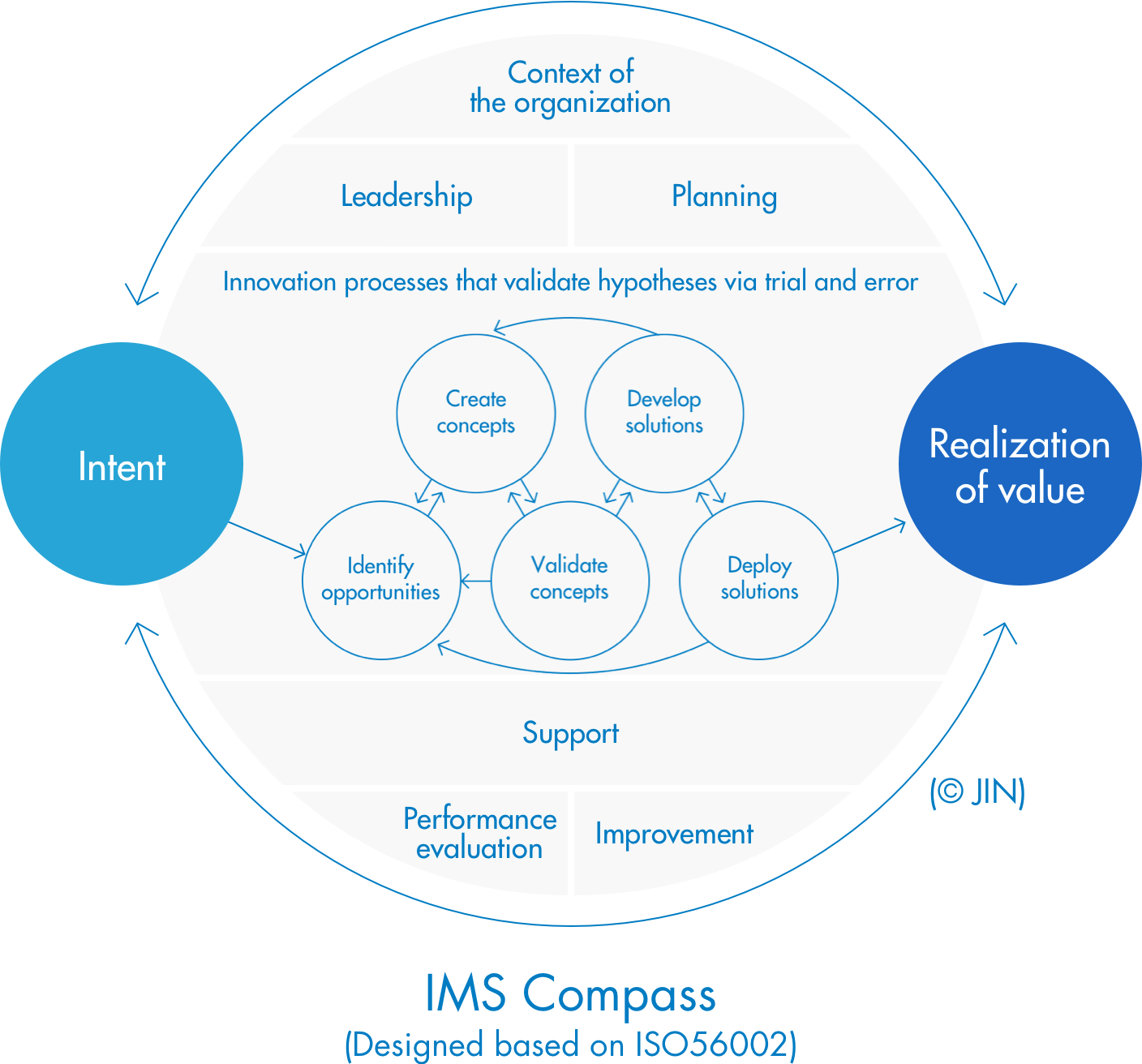
To this end, the project team first clarified the “Context of the organization” including the environment surrounding the Kokubu Group and confirmed the role of Kokubu as required by stakeholders and society. Then, the team analyzed the 169 targets of the SDGs in detail, listed the “Relationship between the SDGs and the Kokubu Group’s business,” and identified which SDGs targets the Kokubu Group should contribute to achieving.
And the SDG strategy was developed after clarifying the Kokubu Group’s strength, what kind of “value” it currently provides to stakeholders, what kind of value it would like to provide in the future, as well as “Intent” and what kind of corporate group it would like to become over the next 100 years.
In addition, with the aim of realizing the Kokubu Group’s ideal state, the project team proceeded to determine what business opportunities exist (“Identify opportunities” in ISO 56002), and to develop a business model (“Create concepts”) to realize them.
Orie Hiraga, Group Manager of the Sustainability Promotion Section, who participated in the project as a core team member, said, “Through the process of this project, we were able to discuss and think about what significant role the Kokubu Group can play in the society, and what kind of value we can offer. In the process of this discussion, we did not deny opinions that might be taken as so-called “grievances,” but instead took them as opportunities to create value by solving issues, and thoroughly and earnestly discussed them. I feel that the fact that the discussion was able to proceed without deviation was largely due to the understanding of the SDGs that we were able to deepen through the thorough analysis of the 169 targets in the beginning. These free discussions helped us envision the future for the next generation and led to the setting of major goals for the Kokubu Group.”
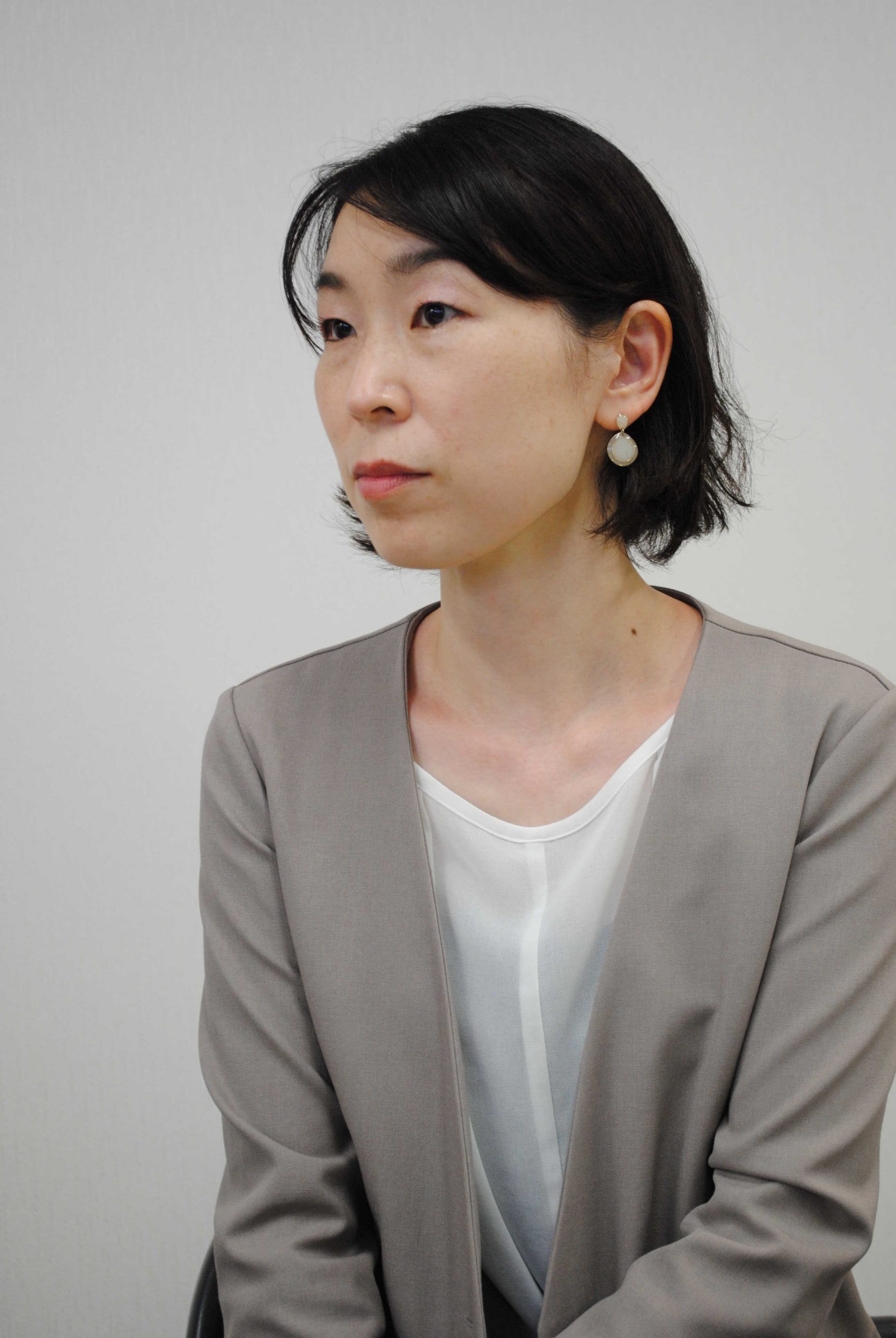
The project team developed a statement of the Kokubu Group’s SDGs strategy, ” We will pass on the business we have built up over 300 years to the next generation. We will create happiness and smiles for everyone across the globe through food.” And in September 2020, the Chairman and the President announced the strategy. This SDGs strategy was also reflected in the 11th Long-term Business Plan.
[Kokubu Group websites]
Corporate site: https://www.kokubu.co.jp/english/
Social & Environmental Conservation Activities: https://www.kokubu.co.jp/english/sustainability/
Subsequently, Sustainability Promotion Section has communicated the SDGs strategy and the methods for identifying business opportunities in the SDGs and creating business models to Group employees. And each group company is currently working toward the realization of Kokubu’s ideal state identified in the strategy.
Hideyuki Koga, General Manager of the Sustainability Promotion Section, who was a member of the core team, commented on their activities after the project, “Based on the materiality, targets, and basic action policy developed, and the 30 SDG targets selected in the project, a 12-member project team, including new members from the human resources and healthcare divisions, established 18 KPIs for realization of the SDGs strategy. Then, the project team evaluated the business model based on the ISO 56002 framework and shared it with the committee members of the 11th Long-term Business Plan, which started in 2021. And finally, the SDGs were integrated into our business strategy.
One year has passed since then, and various exiting projects and working groups have been launched within the Group, and efforts are being made to solve environmental and social issues through innovations. As JIN has taught us in the SDGs Strategy Development project, it was very important to integrate the SDGs into business strategy. The approach to the SDGs has become much easier for Kokubu Group, as the implementation of our business plan is now directly leads to the achievement of the SDGs.”
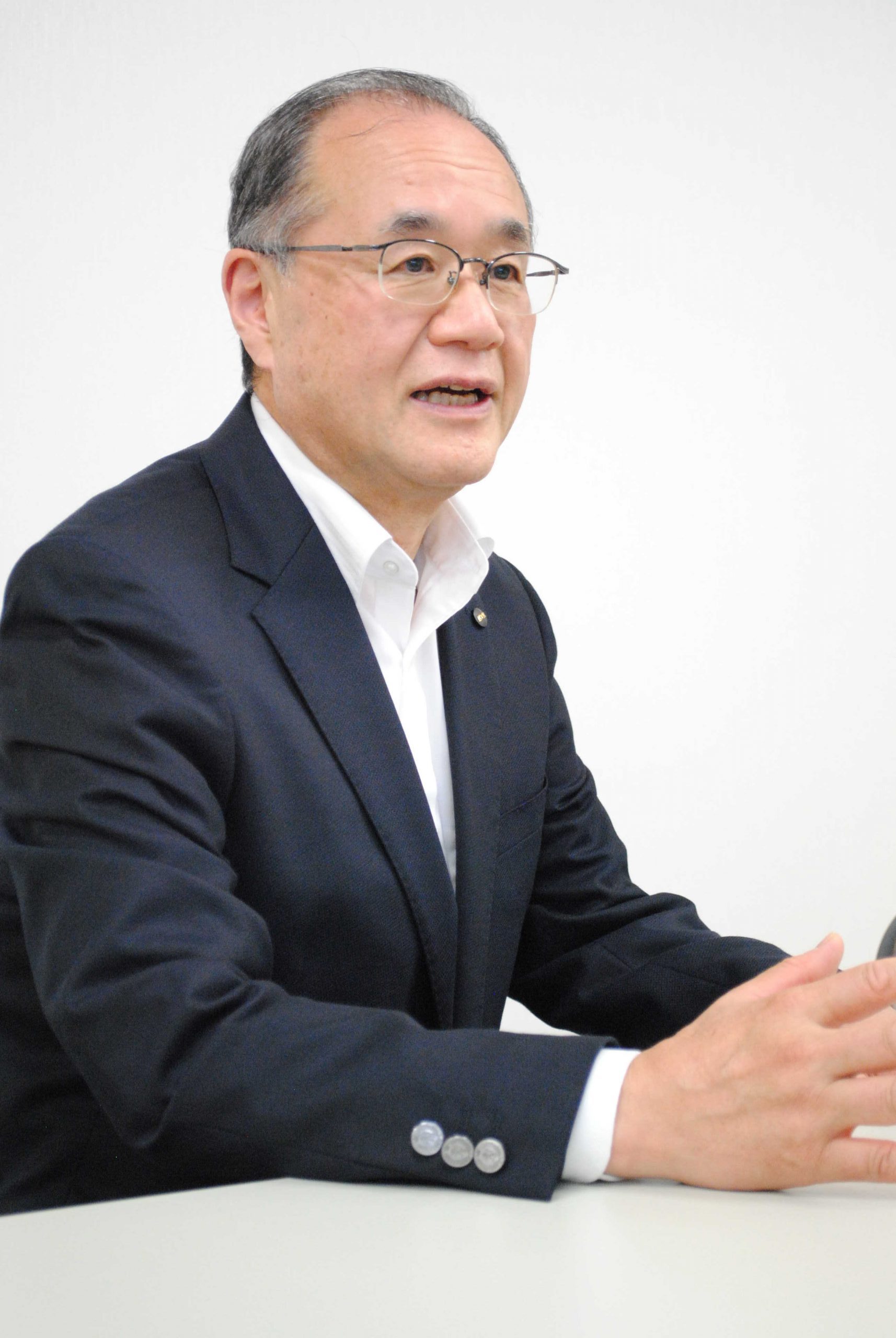
Creating SDG-driven business models in accordance with the innovation management process implemented in the Kokubu Group’s project is one of the SHIP’s expertise. SHIP will continue to provide support to Japanese companies in such activities to make further use of their technology and know-how to achieve the SDGs.
Share this article
